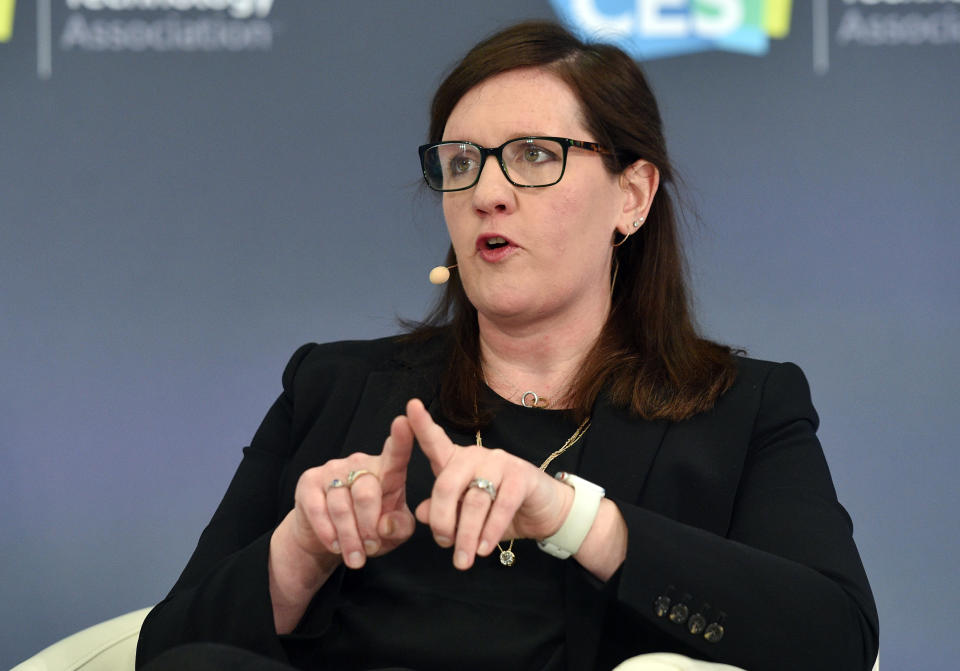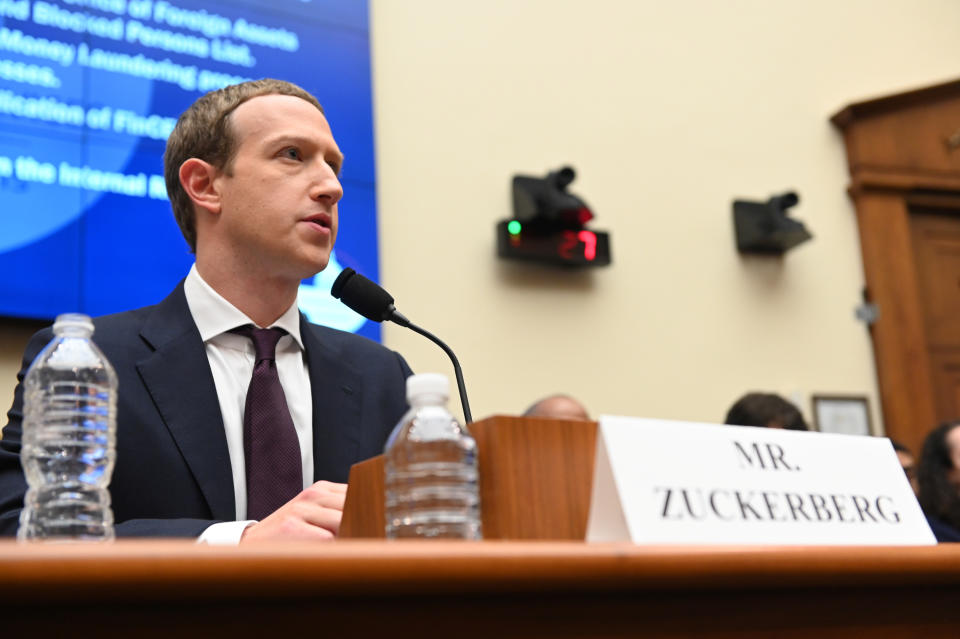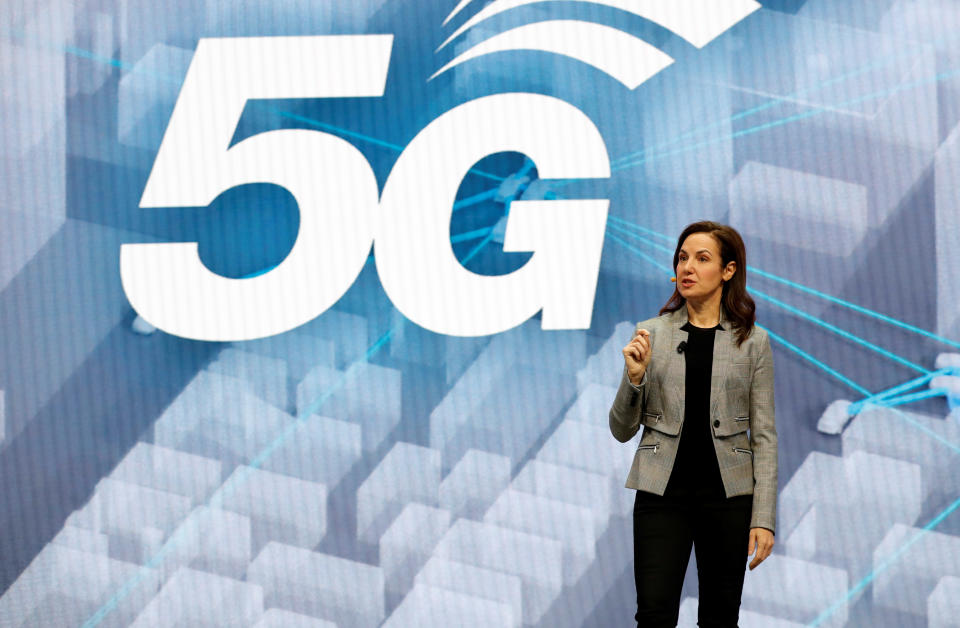FTC commissioner on new tech like self-driving cars: I 'see lots of risk'
Among the self-driving cars, connected gadgets, and promises of a reimagined world powered by 5G at CES 2020, FTC Commissioner Rebecca Slaughter sees new risks of cybercrime.
It’s not just the physical products on hand at the massive consumer tech convention, but the safety of the data they collect that Slaughter says needs the proper protection.
“I think it is a really important issue. I’m glad it’s one that people are talking about a lot, because as I walk around the show floor — and I’m so impressed with all of the innovations and developments I’m seeing — I also see lots of risk,” Slaughter told Yahoo Finance during an interview at CES 2020.
For example, Slaughter pointed to self-driving cars as an incredible opportunity for the future, but if a hacker or malicious actor were able to take one over, it would be a major safety issue.

It’s no coincidence that Slaughter was at the tech show to discuss privacy and upcoming technologies. The commissioner was appointed to the FTC in 2018 after serving as Chief Counsel to Senator Charles Schumer (D-NY), advising him on everything from consumer protection to telecom competition and, of course, privacy.
Slaughter, however, points out that while she is concerned about personal user privacy, she has similar issues with data security, data use, and data abuse.
“How is that turned around against us to target content or make algorithmic decisions for people? So those are really important questions that we need to grapple with amid this sea of technology that provides incredibly innovative and important services, and also collects extremely, almost incomprehensible amounts of data,” she said.

In July 2019, Slaughter dissented against the FTC’s move to fine Facebook (FB) a record $5 billion for violating a 2012 consent decree as a result of the Cambridge Analytica scandal. That incident saw a third-party political consulting firm exploit Facebook user data, without those users’ knowledge, to aid Donald Trump’s presidential campaign.
But Slaughter’s dissent wasn’t a result of her hoping to give Facebook the benefit of the doubt. Instead, it was because she felt it didn’t go far enough in punishing the social networking giant.
Slaughter, at the time, argued that Facebook, and CEO Mark Zuckerberg, should have faced litigation brought by the Department of Justice, in the hopes that doing so would send a message that tech giants need to be held responsible for their actions, as well as the actions of those who have access to the user data they collect.
“The complaint filed today alleges continuous law violations by Facebook: deceptive privacy settings, failure to maintain safeguards over third-party access to data, serving ads by using phone numbers provided to Facebook for the purpose of account security, and lying to certain users that its facial recognition technology was off by default, when in fact it was on,” she wrote in her dissent. “The evidence the Commission amassed in its investigation more than justified initiating litigation against Facebook and Mr. Zuckerberg alleging violations of the Commission’s order.”
5G and what consumers are really buying
Beyond privacy, Slaughter also pointed to potential issues in regarding 5G. The next generation of wireless connectivity following 4G LTE, 5G promises decreased latency and dramatically faster speeds. But the networks are still in their infancy, and nowhere near as readily available as current 4G networks.

Samsung, OnePlus, and Motorola, among other smartphone manufacturers, currently sell phones that offer 5G connectivity. But the lack of a robust 5G network means that consumers will end up spending most of their time using 4G LTE connections. That, Slaughter says, is a major problem.
“If I can’t get on a 5G network, then I just have a phone that was maybe a little bit more expensive,” she said. “And so I want to make sure consumers are getting the benefit of their bargain when they are buying these updated 5G devices. We need to really have a network to utilize them.”
Slaughter’s comments come as all of the Big Four carriers attempt to build out their 5G networks. (Disclosure: Verizon is the parent company of Yahoo Finance.) And while each of the carriers promote their 5G offerings, none have a full nationwide network anywhere close to what they can claim they have with their 4G LTE networks.
For sure, 5G could be a transformational technology. But when exactly it will reach that level is still anyone’s guess.
More from Dan:
Impossible Foods CEO slams ‘the most destructive technology on Earth so far’
Why your debit card is the least secure way to pay for goods
Got a tip? Email Daniel Howley at [email protected] or [email protected], and follow him on Twitter at @DanielHowley.
Follow Yahoo Finance on Twitter, Facebook, Instagram, Flipboard, SmartNews, LinkedIn, YouTube, and reddit.
